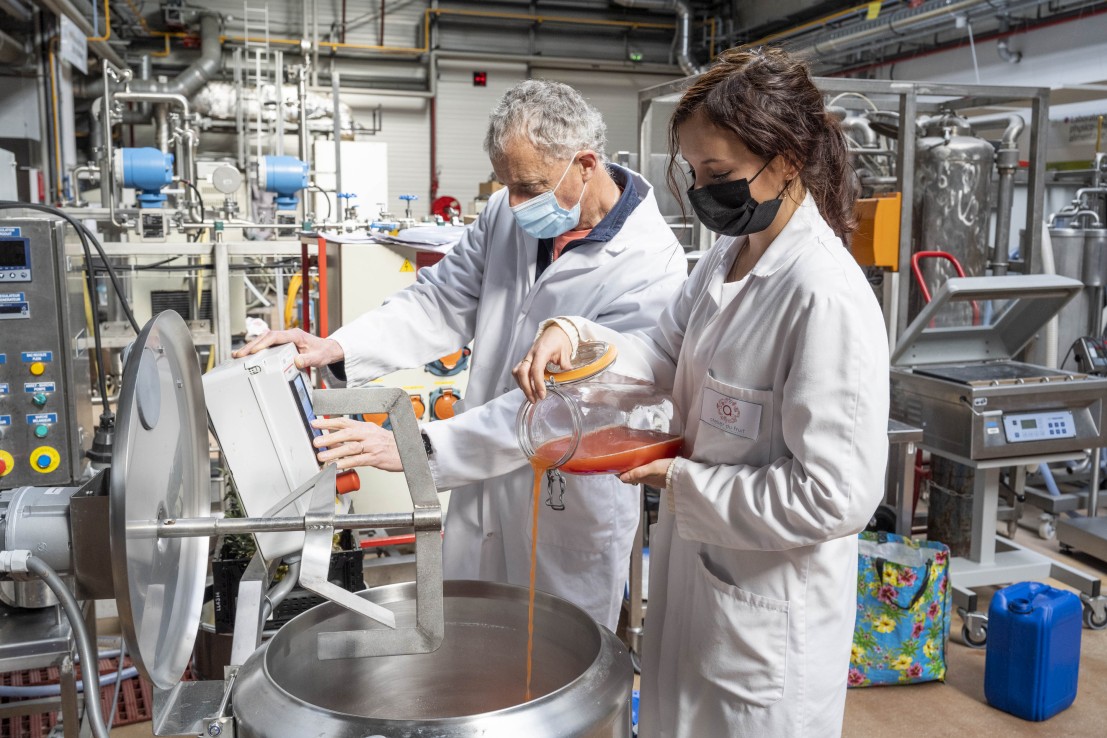Companies can rely on public research laboratories to develop their innovations and perfect new processes for the food industry. Here is the example ofAtelier du Fruita start-up founded in 2012 whose team of researchers use laboratories in the CIRAD from Montpellier, fromInrae Avignon and theInstitut Agro Dijon.
In order to integrate natural processes into the composition of their products and produce ultra-processed products, French and worldwide food companies call on this company. “Our customers, both SMEs and large international groups, tell us about their project: removing ingredients that are not necessary, eliminating additives of synthetic origin, reducing sugar”explains Alain Étiévant, founder and general manager of Atelier du Fruit.
Developing healthier products, developing new flavors
“We are a team of engineers and researchers specializing in the biotechnologies of enzymology and fermentation, with extensive experience in industrial transformation processes. We carry out numerous tests to develop new flavors and new textures with a view to naturalness. It is this principle that governs the innovation actions of our customers, whether small or large. »
The 10 employees of Atelier du Fruit are thus developing turnkey manufacturing processes. The team is spread over several public research sites: CIRAD Montpellier, Inrae Avignon and the Institut Agro Dijon. Thanks to this establishment in public research laboratories, the company benefits from infrastructures and a wide range of state-of-the-art equipment, in return for rental.
Carry out full-scale tests in public laboratories
“We have access to pilot lines to go from the laboratory scale to the industrial scale. As soon as we have a question, we will ask it to the researchers”says Camille Duc, fermentation scientific manager at Atelier du Fruit.
“We are forging a great collaboration with a dynamic start-up”, explains Jean-Paul Danflous, head of CIRAD’s agri-food platform in Montpellier. “ The 1,200 m² multi-process and multi-scale technological hall, associated with physico-chemical and sensory analysis laboratories, is made available through private sector rental. Welcoming companies allows researchers from both spheres to meet and discuss innovative programs. It also means helping to absorb cutting-edge technologies developed by French public research. »
300-kilo fermentation tank, freeze-drying equipment, over-pressurized and over-filtered room at 4°C like the one used by professional caterers to prevent particles from settling on food… “We can carry out full-scale tests, under the same conditions as those of our customers, who will use the solutions that we deliver to them”comments Laura Bouley, project manager at Atelier du Fruit.
Fermentation, a promising challenge
How to increase the shelf life of fruits sold by cutting, while improving their nutritional properties? It is to meet this type of demand that Atelier du Fruit has specialized in the fermentation of fruits and vegetables, a technique widely used in Southeast Asia.
“We are adapting the fermentation process to current food issues. Then, we optimize the fermentation conditions to obtain the desired product and to allow the industrialization of the process »continues Camille Duc.
An airtight jar, well-washed fruits or vegetables, some ferments: “Fermentation brings many benefits: it offers a rich aromatic palette, makes it possible to increase the shelf life of food in a natural way, while requiring little fossil energy and little financial effort. All you have to do is control the fermentation conditions: duration, temperature…”observes Alain Étiévant. “This process therefore makes it possible to respond to many of the problems of our customers. »
Atelier du Fruit will soon implement a project enabling market gardeners and canteen managers to fight against food waste in collective catering via fermentation.
–


